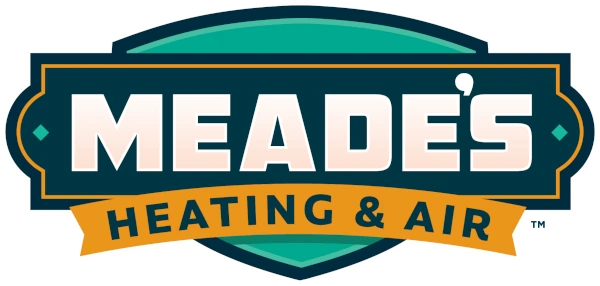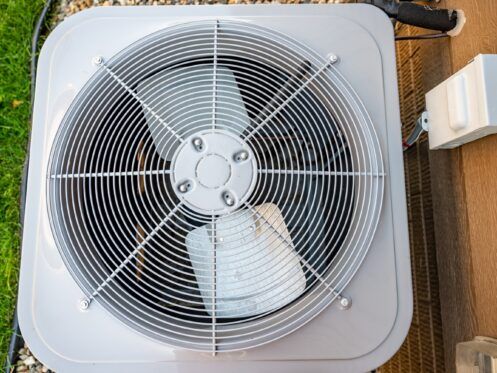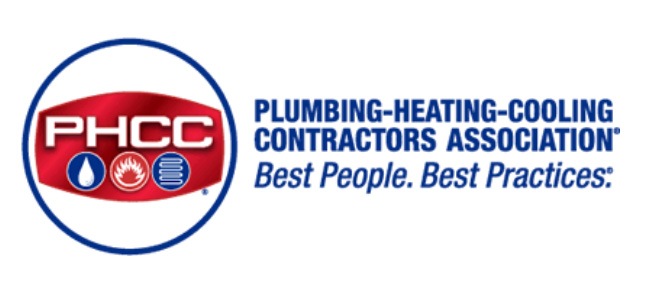Having an air conditioner that only blows hot air is far more than an inconvenience. When the outside temperature soars, this is an issue that can leave everyone in your Sterling, VA home vulnerable to heat exhaustion, heat stroke, and other temperature-related health issues. More importantly, if left unchecked, it can also cause total AC system failure. The following are eight reasons why your air conditioner is distributing hot air, along with a few troubleshooting tips.
1. A Blocked or Excessively Dirty Air Filter
Contrary to popular belief, HVAC air filters aren’t designed with protecting human health as their top priority. Although standard HVAC air filters provide a variety of indoor air quality (IAQ) benefits, they’re actually installed to keep airborne particulates like dirt, pollen, and dander off of sensitive, interior AC components. Without a clean filter in place, these and other allergens and contaminants would coat your cooling system’s evaporator coil and more.
Unfortunately, when HVAC air filters become too dirty, the debris that they’ve already collected gets blown off during operation. When it does, it can block the air registers and vents throughout your home and impede the heat transfer process. Cooling systems also have a much harder time moving air through dirty filters. This extra work leads to overheating and the distribution of warm air rather than cooled air.
To prevent these and other problems, you should check your air conditioner’s filter every 30 days. You should change your AC air filter every one to three months, depending on the size of your household, how often you use your air conditioner, and any special IAQ concerns you might have.
If a dirty air filter has caused your air conditioner to overheat, turn off the unit and let it cool down before attempting to troubleshoot and restart it. Replace the old filter, and then check the HVAC air registers and vents throughout your house for blockages. If these features are covered in gray, lint-like material, wipe them off with a soft, damp cloth. You can also remove your HVAC air vent covers and gently vacuum behind them.
2. Airflow Obstructions at the Outdoor Condenser
Airflow obstructions can also exist at the outside condenser unit. Your air conditioner’s outside condenser houses its compressor. It’s also where the heat that the system’s refrigerant has absorbed is discharged. Given its outdoor location, the AC condenser can easily be encroached upon by fast-growing trees, shrubs, or weeds. If your air conditioner is running cooling cycles longer than normal, distributing warm air, or failing to stay on top of humidity regulation, make sure that its condenser has at least two feet of clearance on all sides.
3. Crushed or Otherwise Damaged Ducting
It’s also a good idea to check any exposed ductwork throughout your home. For instance, you might have air ducts in your garage, basement, or laundry room that aren’t sheltered by drywall. If any of these structures has been accidentally hit by a ladder or other heavy item, changes in its shape or integrity could be inhibiting airflow.
Ripped or torn ducting throughout other areas of the house can be problematic as well given that these features will deposit cooled air behind your drywall where it won’t have any impact on indoor conditions. All of these issues place stress on HVAC equipment and can eventually lead to overheating. In some instances, torn ducting can additionally allow warm, unfiltered air into the system. This air is then distributed throughout the building without ever having its heat, particulates, or excess moisture removed.
4. AC Evaporator Coil Problems
Although having a clean, properly fitted, and correctly installed air filter will help keep your air conditioner’s interior components clean, this doesn’t mean that the AC evaporator coil is fully protected from accumulations of hair, dust, and other matter. During the cooling cycle, warm air is pulled from the interior of the building, moved through your air conditioner’s filter, and then passed over the evaporator coil. This coil contains chilled refrigerant that absorbs heat from the indoor air. With too much debris on the evaporator coil, this heat transfer can’t occur.
Heat transfer is also impeded by other evaporator coil problems. In most cases, failure to absorb heat will cause the evaporator coil to ice over. One of the easiest ways to avoid evaporator coil issues is by scheduling annual AC tune-up service just before the summer season starts. During professional AC tune-ups, evaporator coils are carefully inspected and cleaned. If there are small or still-developing problems with this component, our technicians will identify and resolve them before they spiral out of control or have an impact on other AC functions and features.
5. Check Your Thermostat
Unless you’ve received a comprehensive tutorial about how to use and set your thermostat, you may find its interface and settings a bit confusing. Most thermostats have “OFF,” “ON/AUTO,” and “FAN” settings. Although toggling your thermostat to “FAN” might seem like the right idea when you want cool air, it will actually keep your air conditioner from ever initiating a cooling cycle. When thermostats are set to “FAN,” air conditioner blowers simply cycle warm indoor air throughout buildings. For chilled rather than warm air, simply set your thermostat to “ON/AUTO.”
6. There’s a Refrigerant Leak
When HVAC technicians inspect, repair, and clean AC evaporator coils, they also look for evidence of refrigerant leaks. Refrigerant is the lifeblood of your cooling system. It’s how indoor heat is absorbed and then released outside of the building. When refrigerant leaks exist, evaporator coils are often coated in small beads of this liquid. These beads look a lot like champagne bubbles. Much like coatings of dust and other particulate debris, “champagne bubbles” prevent heat transfer and cause evaporator coils to freeze.
Unchecked refrigerant leaks can also cause serious problems at the AC compressor. The compressor is what pressurizes and depressurizes refrigerant to keep it pumping throughout the system. As refrigerant levels increasingly decline, AC compressors work harder to transport coolant. Over time, the resulting stress may lead to compressor failure or a collapsed compressor.
If you spot “champagne bubbles” on your evaporator coil, have warm air blowing out of your vents, and see small pools of refrigerant in other areas, turn off your air conditioner right away. Scheduling service before your AC compressor outright fails can mean the difference between paying for a relatively small-sized repair and paying for a complete AC replacement.
7. AC Condenser/Compressor Issues
After the chilled refrigerant in your air conditioner’s evaporator coil has absorbed the heat from your indoor air, this heat is released at the AC condenser coil. Given its outdoor location, your AC condenser coil is prone to accumulating debris. If you failed to schedule annual AC tune-up service, it might be a dirty condenser coil that’s causing your cooling system to distribute warm air.
If there are electrical problems at the AC compressor, such as a damaged or failed capacitor, this unit might not turn on at all or it may have a hard time staying on. The best way to troubleshoot and resolve any condenser/compressor issues is by having one of our seasoned technicians inspect and diagnose the issue.
8. Condensate Drain Line Blockages
Water is a natural byproduct of the cooling process. When heat is absorbed, the resulting moisture is condensed and routed out of your home via your cooling system’s condensate drain. Blockages along this drain line can negatively impact the heat transfer process and cause a rise in indoor humidity. If the air being distributed throughout your house is both warm and muggy, your condensate drain line is the most likely culprit. Our technicians can clear condensate drain line blockages caused by algal blooms and other factors.
The team at Meade’s Heating and Air proudly serves residents of Sterling, VA and the surrounding communities. We’re committed to offering total transparency, competitive pricing, and consistently superior outcomes. We provide heating, cooling, and indoor air quality services. We also offer gas line, ductwork, and duct sealing services. If your air conditioner is blowing out hot air, give Meade’s Heating and Air a call today.




